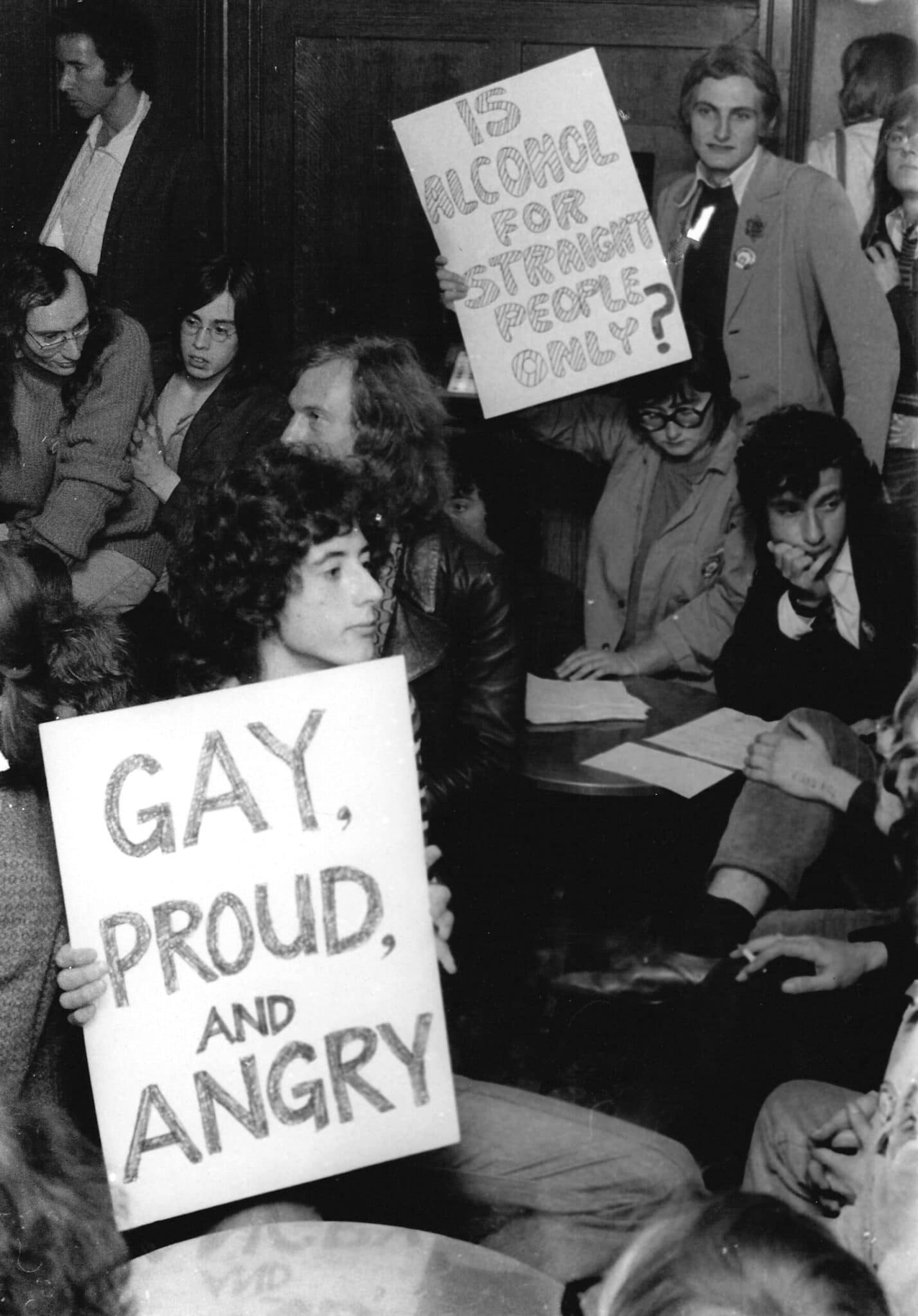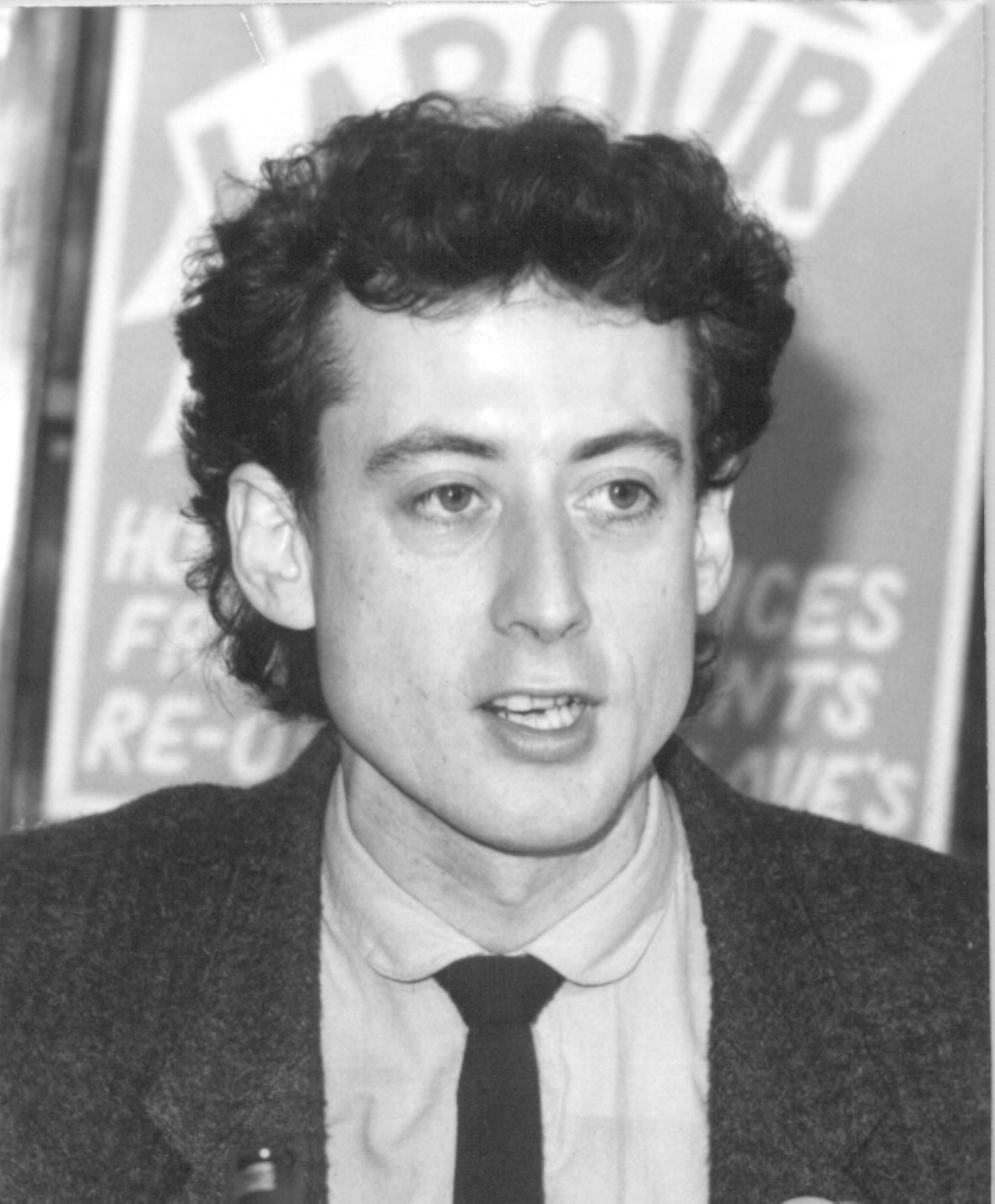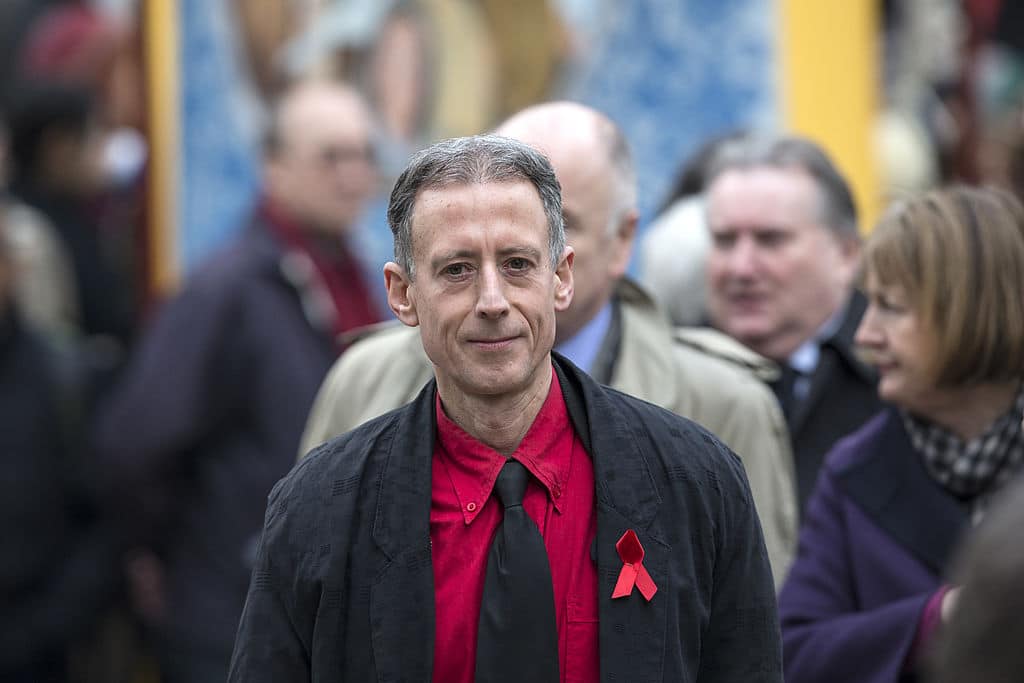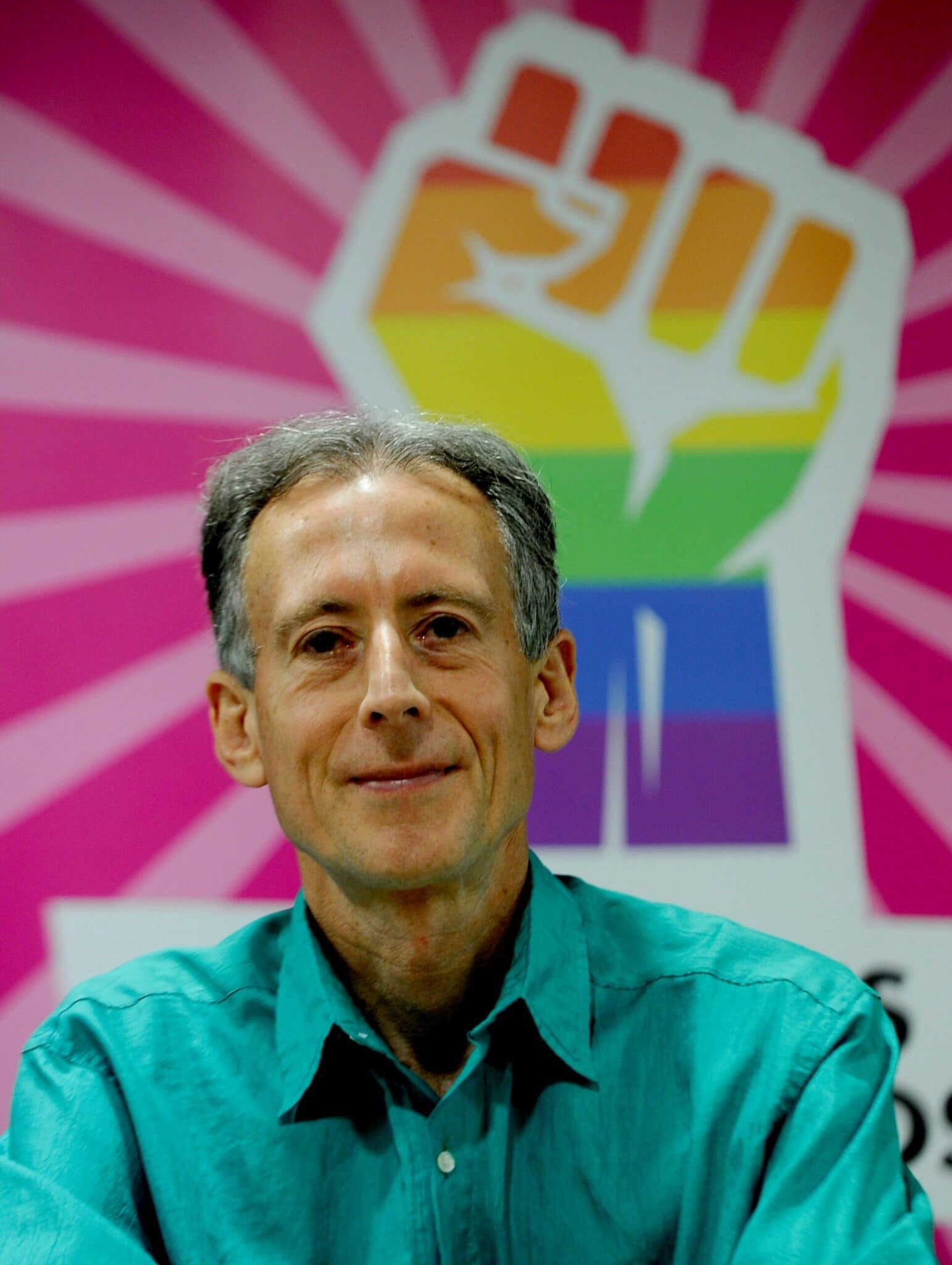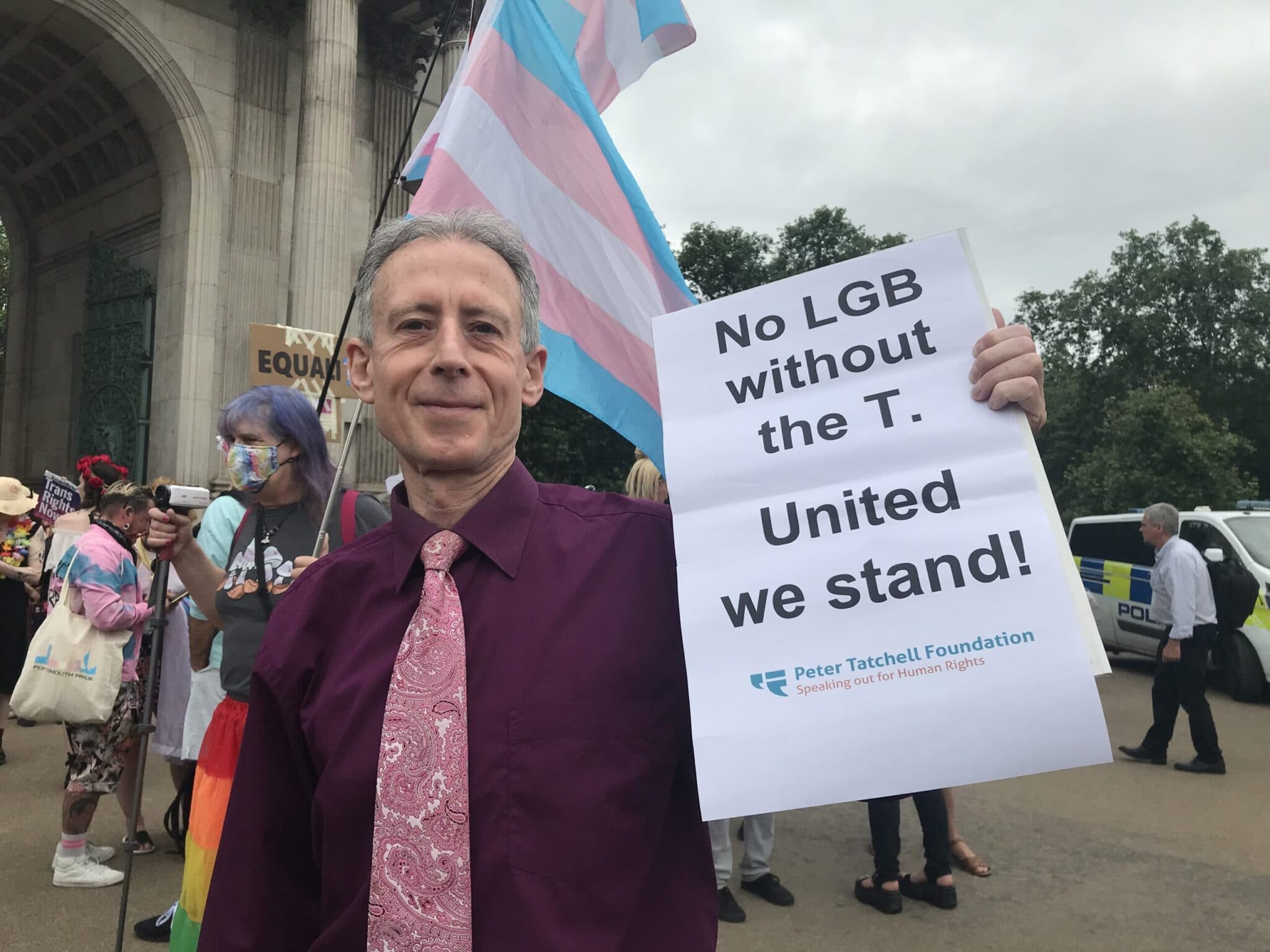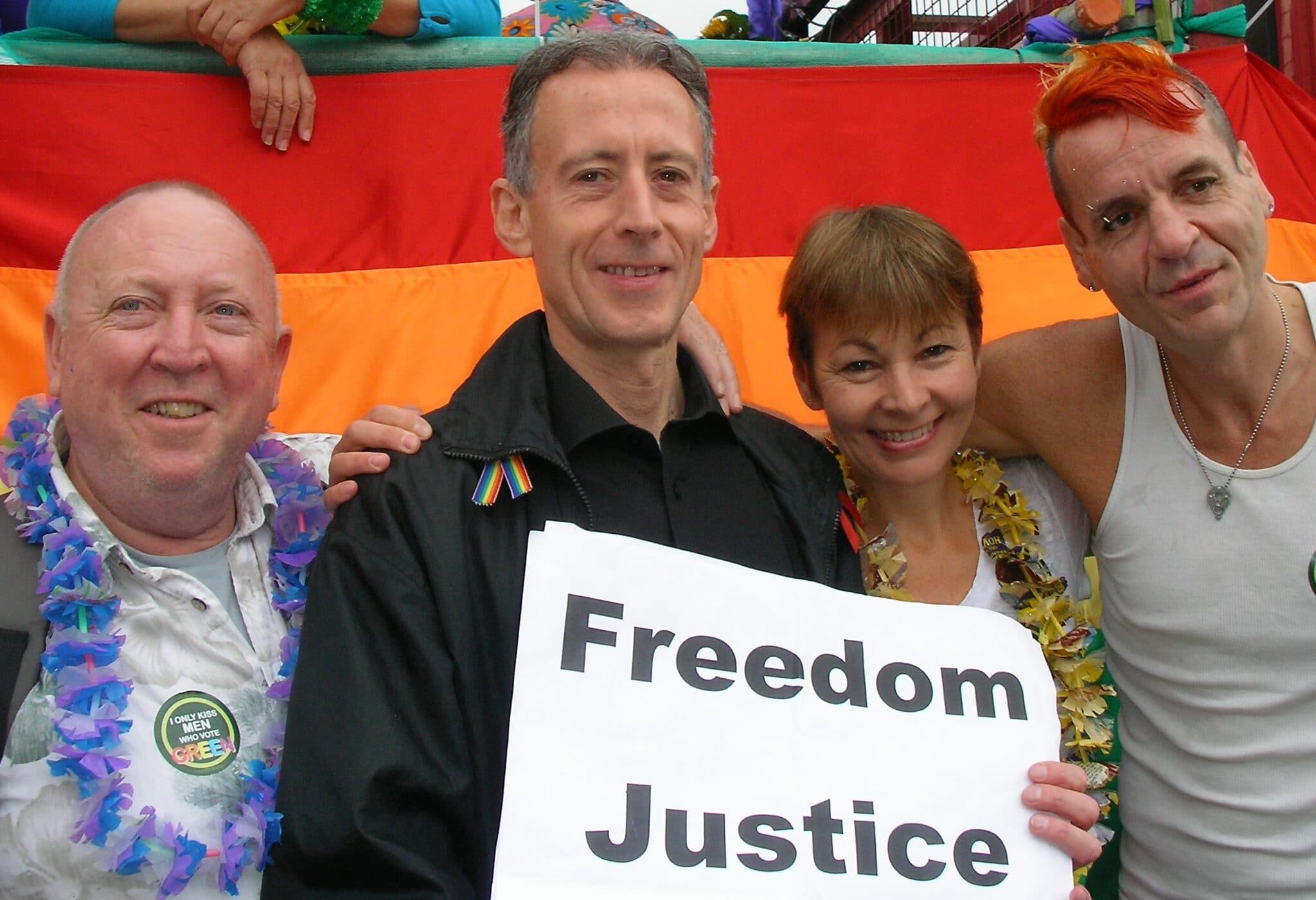Peter Tatchell on a lifetime of fighting for equality: ‘Transphobia is the biggest challenge today’
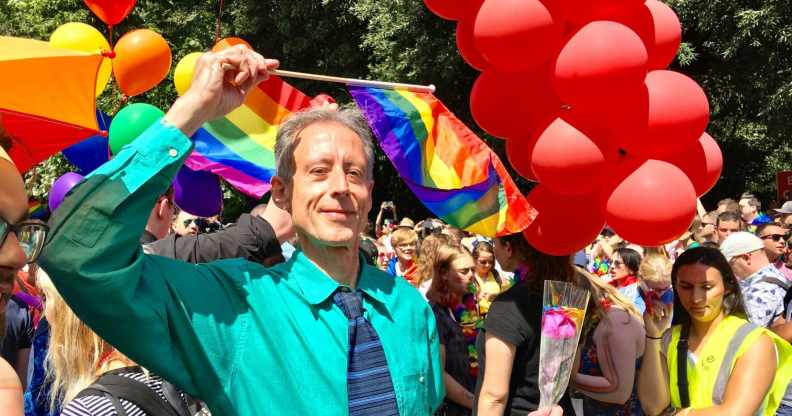
Peter Tatchell at Dublin Pride. (Provided)
As prolific human rights campaigner Peter Tatchell turns 70, PinkNews asked leading LGBT+ activists and advocates to pose their burning questions.
There are few who can say they’ve been fighting for equality for quite as long as Peter Tatchell, who celebrates his 70th birthday on Tuesday (25 January).
Tatchell was born into an “extreme evangelical Christian” family in Melbourne, Australia, on 25 January, 1952. When he came out as gay in the late 1960s, homosexuality was still illegal.
“I never had a moment’s guilt or doubt,” Peter Tatchell told PinkNews in November 2021. “And within a few months, I was doing one-man campaigns for LGBT+ rights in Melbourne.”
He later tried to set up an LGBT+ rights organisation in Melbourne, but he found that all of his gay friends were “too frightened” to get involved. They were afraid of facing persecution or arrest for simply being who they were.
Tatchell never let fear get in the way – he has now spent 55 years fighting tirelessly for LGBT+ and human rights. Even the many physical attacks he has endured haven’t deterred him from his activism.
He is now 70 years old, but he shows no sign of stopping or slowing down.
To celebrate Peter Tatchell’s 70th birthday, PinkNews invited other LGBT+ activists, campaigners and personalities to ask him the questions they’ve always wanted answering – covering his own history of activism, offers of reality TV, and the future of LGBT+ rights in the UK and across the world.
You once said to me that it takes 50 years for a movement to create lasting change. As you hit 70 years, what has changed the most? Of all the things you have done, of all the risks you have taken in the pursuit of activism, in what moment were you most scared? And finally, do you still keep books in your oven? – Chris Sweeney, host of the Homo Sapiens podcast
Since the turn of the century, we’ve seen huge positive changes in law and public attitudes. They are the culmination of the campaigning momentum built up over the last 50 years. My scariest moments were being arrested by the East German secret police in 1973 when I staged the first LGBT+ protest in a communist country; and the bashings I received when I attempted a citizen’s arrest of president Mugabe in 2001. It was also pretty scary to confront Mike Tyson over his homophobia in 2002 and to be attacked by neo-Nazis in Moscow in 2007 when I went there to support the heroic Russian LGBT+ campaigners.
Yes, when I ran out of storage space, I used to store books and crockery in my oven. Needless to say, I did not have many oven-cooked meals.
Peter, darling, I remember learning about you on my way back from New York with Kevin Millens after a week of business/debauchery, can’t remember what order. Anyway, the first time I saw you, you were riding a bike to Heaven Nightclub. You were always one of the first on the dance floor and the last one standing when the music stopped. What was so special about our club that made you a dedicated customer and are you still dancing in clubs? If yes, which one? – Mzz Kimberley/Kim Tatum, actress and activist
The dance floor of Heaven was where I could relax and unwind; forgetting the pressures and stresses of campaigning. It was my mental safety valve that kept me sane. Plus I met some great friends – and a few lovers – there. The music was so uplifting and energising. It helped me recharge for the week ahead. Alas, I rarely go clubbing now but still listen to the latest electronic dance music at home. My favourite dance track of 2021 was Conleth Kane’s 7th Heaven remix of his track “Proud”.
How do you look after your mental health, especially during the more challenging moments of campaigning, and also on social media? – Jonny Benjamin, mental health activist
I’ve been violently assaulted over 300 times. There have been more than 50 attacks on my flat, including three arson attacks and a bullet through my front door. I’ve faced six serious plots to kill me and have periodically been under armed police protection. It’s frightening and very stressful. For many years I feared being killed and had PTSD – but now just ordinary nightmares. It has been really tough. I’ve had bouts of depression and even passing suicidal thoughts. I’m regularly baited, abused, smeared and demonised on social media. My mental and physical health is under constant pressure. What’s enabled me to survive is having a group of wonderfully supportive friends and my own iron-like focus on the goal of LGBT+ rights and other human rights.
How has campaigning changed since you started in the ’60s compared to now? Is there anything activists now can learn from the past? – Lewis Oakley, bisexual activist
The web, email, mobile phones, scanners, photocopiers and digital cameras did not exist when I began campaigning in the 1960s. They have made campaigning much easier. Back then, organising was more person to person. We knew each other better. Campaigns would be organised in people’s offices or homes, over cups of tea. Social media is a boon but it’s also more distanced and detached, as well being a toxic cesspit. If fascism comes to Britain it will be on the wings of Twitter.
If you had to do a TV reality show, which one would you choose and why? What do you think is the biggest challenge facing LGBTQ+ people at the moment? – India Willoughby, television presenter
I turned down Big Brother three times in the early days – including an offer of £100,000. The only reality show I might have vaguely considered was Hunted, because it required some level of skill and appealed to my sense of adventure. But I was never asked.
The biggest challenge right now is to defend trans people against an unprecedented torrent of abuse, misrepresentation, smears, demonisation and scare-mongering.
Peter, you’ve kept fighting for justice and equality, not just for the LGBTQIA+ community but for many other causes – I’m sure there’s some times when it’s felt so hard to keep going, what made you? – Bobbi Pickard, CEO of Trans in the City
True, I’ve never been only an LGBT+ campaigner. My work encompasses human rights for everyone, plus other causes like the climate emergency, global justice for poorer countries and animal rights. I often receive 1,500+ messages and requests a day. It is exhausting trying to keep up. What keeps me going is a combination of my love of other people and of freedom, justice and equality. Plus, I’m motivated by the successes I’ve helped achieve for individuals and campaigns. When I see a wrong, I want to help put it right. I do my bit, as do many others. Together, we make the change.
In recent decades we’ve seen some sections of our communities step back from activism, disengaging from politics that affects the breadth of the community – some say there is little left to fight for. What do you say to those who think we’ve got everything we need because Drag Race is on the telly? – Scottee, performer and activist
No one has had their rights given to them. They’ve always had to be fought for. Activism is the lifeblood of democracy and social reform. LGBTs have made huge progress in the last two decades, but we are still waiting for a ban on conversion therapy and trans self-ID and healthcare. Plus there’s been a big rise in reported anti-LGBT+ hate crime. Chemsex abuse, self-harm and same-sex domestic violence are mostly hidden problems that need addressing. This is no time for complacency.
What advice do you have for white cisgender queer male activists who want to be intersectional and inclusive but are mindful of taking up space? – Dr Ronx, A&E doctor and presenter
We should always strive to platform, listen, support and amplify lesbian, trans, Black and disabled voices within our community but also act in solidarity – speaking up for them as allies. Sometimes the fear of taking up space results in inaction and nothing being said or done. I always value straight people who publicly advocate for us. Because we are a small minority, we need allies in the majority community. In addition, we should do more to connect with and support other progressive social movements like Black Lives Matter, Extinction Rebellion and #MeToo. United together, we are stronger and can help empower each other.
In the UK and many regions around the world, we’ve seen enormous changes in law and attitudes towards LGBTQ rights. Did you imagine in 1972, when you organised the first Gay Pride event in London, that you would live to witness so much progress? – Matthew Hodson, aidsmap executive director
In 1969, aged 17, there was no long history of LGBT+ campaigning. So based on the US Black civil rights struggle, I reasoned that LGBT+ people were an oppressed minority like Black people and we also had a claim to respect and rights. I guesstimated that it would take about 50 years to win legal equality in western countries like the US and Britain. I was in it for the long haul.
What do you predict is the timescale for ending conversion therapy? What would be realistic for the UK, Commonwealth, and globe? – Jason Domino, conversion therapy survivor
I expect it could be banned in the UK by the summer but more likely by the end of the year. It could and should have been banned three years ago. In the Commonwealth and the wider world, I fear it may not happen until 2080 or later. That’s a sad indictment of the scale of anti-LGBT+ ignorance and prejudice in many parts of our planet.
What has been your most defining moment so far, to you personally, as an LGBTQI+ activist? – Andrew Dalton, founder of ReportOUT
Being part of the London Gay Liberation Front 1971-74. It was the watershed moment in British LGBT+ history, when we shed the defensive victim mentality, stood tall and proud, came out en masse, publicly protested for our rights and created the first LGBT+ community institutions, such as Gay News and Gay Switchboard. GLF’s simple three-word slogan, ‘Gay is Good’, was a revolutionary idea in an era when the social consensus said that being gay was bad and shameful. It helped change queer consciousness.
You’ve faced so many impossible situations and setbacks, you’ve kept on going despite all the odds. From where do you draw your inspiration? Do you have a spiritual side that helps with this? – Jayne Ozanne, conversion therapy survivor and LGBT+ rights activist
My inspirations are people like Mohandas Gandhi, Sylvia Pankhurst and Martin Luther King. I’ve adapted some of their ideas and methods to my own contemporary struggles for human rights – and invented a few of my own. Religion is irrational superstition and dogma to me. We don’t need god to lead an ethical life. I’m a humanist and believe in science, reason, logic and evidence. It’s a better way to understand the world, our place in it and how to improve our lives.
What’s the most effective thing you can do as an activist? – Daniel Lismore, artist, designer and activist
There are many different ways we can be change-makers. The most important thing is to do something. Don’t leave it to others, they may be leaving it to you. Lobbying is fine and important but I’d like to see it augmented by more non-violent direct action protests, like OutRage! and ACT UP used to do. There is a legitimate place for righteous anger to challenge things like conversion therapy, government inaction on trans self-ID and healthcare and abuses against LGBT+ asylum seekers who have fled persecution.
As an advocate there is a tremendous amount of self care and inner hope we need to have to keep going in times of great challenges as many in the community look to us for hope. Where have you pulled your strength from and hope over the years to keep going? – Amazin LeThi, LGBT+ athlete advocate
I look at past successful movements like the Chartists and Suffragettes – and more recently the campaign against the poll tax. Despite all the delays and setbacks, they persisted and eventually won. They were part of a huge collective effort, where the participants gave other strength and support. I’ve always kept my eyes on the prize: LGBT+ liberation in the UK and worldwide. I haven’t allowed myself to be distracted by critics and naysayers. All my campaigning life I’ve had some people in the LGBT+ movement say I was wrong. Where are they now? I’m still here. Maybe sometimes I was wrong, but I’ve followed my conscience and done what I believed to be right.
You have done so much for human rights and you are an inspiration. What is your message to the 10 year old children in my class, who are part of a new generation? – Andrew Moffatt, activist and creator of the No Outsiders programme
The right to be different is a fundamental human right and difference enriches us all. If everyone was the same, life would be boring. Accept your own difference and the difference of others around you. Diversity is a beautiful thing. Nurture, respect and embrace it. Don’t just follow the crowd. Be true to yourself. Be your own special creation.
